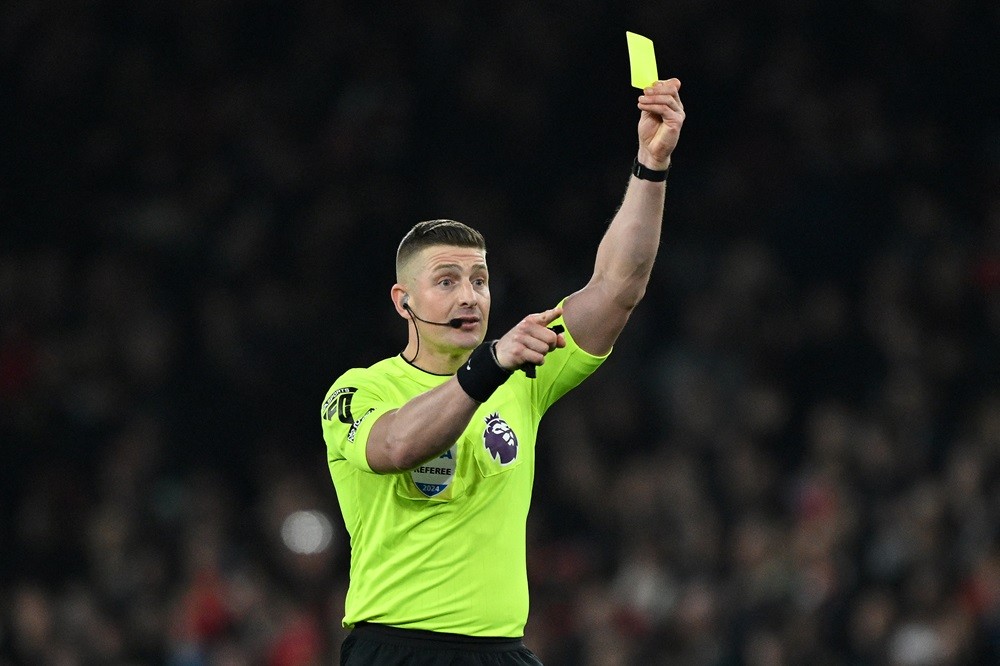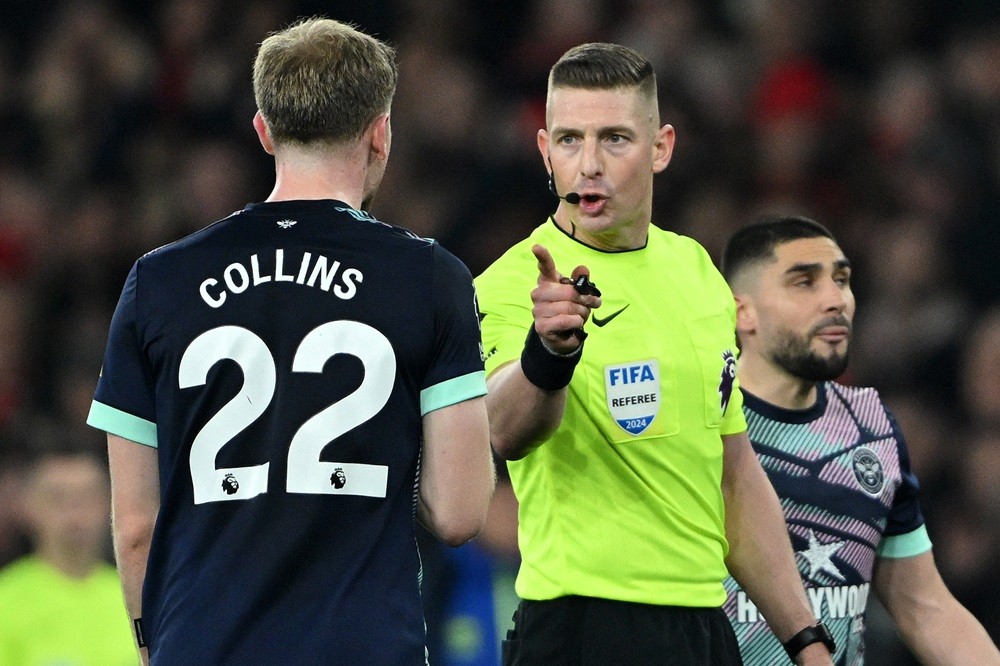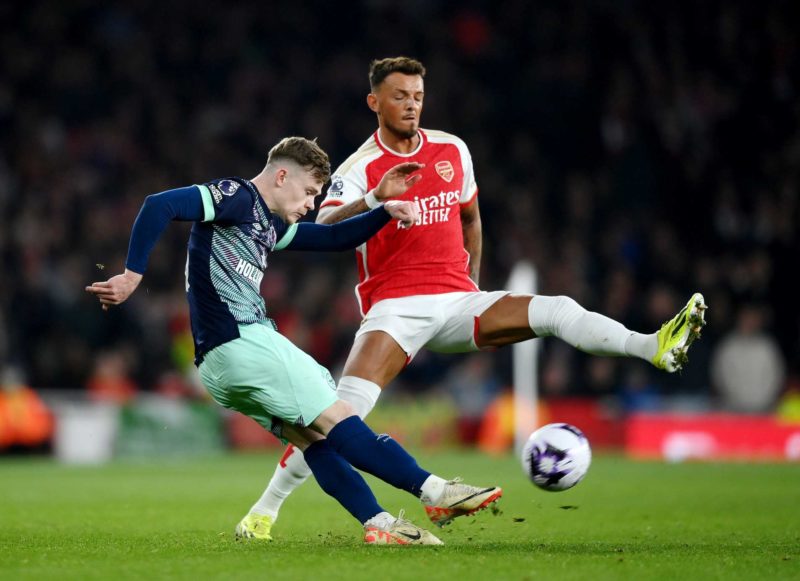No yellow cards were awarded for timewasting in Arsenal’s match against Brentford on Saturday, despite the ball spending less than half of the game in play.

After Arsenal’s 2-1 win over Brentford on Saturday, Sam Dean of The Telegraph highlighted just how little the ball had been in action throughout the match.
With all the added time, the game lasted for 105 minutes and one second, but the ball was only in play for 49 minutes and 26 seconds.
This is starting to become a common occurrence for teams trying to grind out a result against Arsenal.
The ball was in play for just 51.7% of Arsenal’s match away to FC Porto, which was a new low for round-of-16 ties this season.
It seems opposition teams know that the less football played, the better their chances of a result.

The frustrating thing for fans is that all the timewasting went unpunished.
For the 19 minutes of the first half and the 41 minutes of the second half that Brentford were level, they were wasting time constantly. That’s a total of an hour, and not one yellow card to show for it.
The referee added seven minutes on in the second half, so he was evidently aware of how much time had been wasted. He just didn’t punish it.

Unsurprisingly, Arsenal reacted by wasting time after Kai Havertz’s winner, and whilst it would have been very harsh for Rob Jones to suddenly start awarding yellows then, it’s hard to argue the Gunners didn’t deserve one either.
At least the referee was consistent, but consistently failing to punish wasted time is not a good thing.
Time wasting remains a significant problem for football, and the evidence suggests we’re not getting any closer to solving it.
